Taboo and the Zeitgeist
Is Anarchist Outrage against the Rothschilds greatly to be wondered at?
Taboo and the Zeitgeist
“An Anarchist outrage on one of the Rothschilds is not greatly to be wondered at. In France as elsewhere they are so wealthy and hold so prominent a place that they stand out as the natural objects which Anarchists would seek to attack”.
The Times (a London newspaper), 1895
I am painfully conscious that there are people who seem unable to distinguish between certain Jewish people in particular and Jewish people as a whole: writing this piece while attempting to give no ammunition to such elements has been a thanklessly delicate task. It would have been a thousand times easier to have written about the Rothschilds if they had been one of Europe’s many historical Roman Catholic or Protestant banking families: nobody would have imagined for a moment that my criticisms applied to all or even most Catholics or Protestants. But these other dynasties have not played the same central role in creating all that is worst in our contemporary world and so it is on the many sins of the Rothschilds that I am nevertheless obliged to focus.
-Paul Cudenec, December 2022
Were it not for censorship, Nevermore Media would not exist.
For years, I had been writing for various anarchist publications, such as the Earth First! Journal, Slingshot, It´s Going Down, Montreal Counter-Info, Northshore Counter-Info, Anarchist News, Attaque, and others. When I started critiquing the draconian lock-downs and the insane authoritarianism of the COVID psy-op, some of my critiques were published in the legacy anarchist media, but eventually they all started censoring me. So I decided to start my own project.
When I look back on the work that we were doing in late 2020 / early 2021, it seems quite mild. We weren´t saying anything that would have been controversial prior to March 2020. Rather, we were insisting that we must stay true to the animating spirit of the anarchist tradition, which is to refuse and resist the implementation of authoritarian measures.
At the time, I felt that I risked making myself a social pariah by daring to make even these mild critiques. That was how high the stakes were at that point. Dissent was taboo, and it was scary to break this taboo.
Fast-forward two years, and here we are. Shockingly, the world does seem to have mostly returned to normal, although it is difficult to trust this apparent normality in the face of what we now know about the power of 21st century propaganda. I´m still waiting for everyone to admit I was right about everything, but hey, life is good and for now, I can do whatever I want. To me, that´s worth celebrating.
Yes, I know that in all likelihood, this is just a lull whilst the players position themselves for the next round of the insane game of power.
But if this is just the calm before the storm, does it not then behoove us to make the most of the time we do have? Nothing is ever promised in this life. As the song goes:
Drink, and be Merry… For tomorrow, we may die!
The good news is that it is no longer taboo to talk disparaging of masks, ¨vaccines¨, or of authoritarianism justified in the name of biosecurity. We can all breathe a sigh of relief.
The bad news is that we now know how malleable the minds of our fellow human beings are, and how at the wave of his wand, the Wizard of Oz could again turn the world upside-down.
I think a lot of us did lose some friends due to taking a controversial political stance, but I don`t think that I´m alone in having a ¨good riddance¨ attitude towards these zealous dupes.
Honestly, for every friend that I´ve lost, I´ve made at least three. And I know that a lot of my fellow dissidents have had similar experiences. I think that a lot of us feel mentally and spiritually stronger than we were before. What doesn´t kill you makes you stronger, right? The experience of confronting the fear of social disapproval and living to tell the tale has made me more confident in my ability to speak my truth, and from what I´ve observed, my fellow-travelers feel likewise.
It is perhaps for this reason that many people involved in the anti-lockdown movement are now willing to break other taboos.
For instance, various Nevermore contributors have come out of the closet to express their misgivings about the precipitous growth of transgender ideology.
Because anarchists have historically placed high value on the freedom of individuals to transgress against societally-imposed social roles, anarchists have been supportive of the rights of sexual minorities, including transgender people. In recent years, however, it has become unignorable that trans ideology is not at all a grassroots phenomenon, but is very clearly financed by the pharmaceutical industry.
In other words, pharmaceutical companies are marketing mental illness in order to sell drugs, including to children far too young to give informed consent to irreversible medical interventions.
Furthermore, there are also clear parallels between trans ideology and transhumanism. If anyone has any doubts about this, I refer them to the lecture From Transgender to Transhumanism, which focuses on the trans ideologue Martine Rothblatt, who is both a pharma executive and a rabid transhumanist.
But the trans issue is not the only area in which anarchists are confronting long-held taboos. There has also been a willingness to critique Marxism and feminism (see Goodbye Mr. Marx and The Tao of Gender by Darren Allen).
There has even been a willingness to break the taboo against pointing out that some of the international bankers most responsible for the Great Reset are Jewish.
Let me set the scene. Back in 2018, James Corbett released a documentary called The WWI Conspiracy, in which he alleges a conspiracy involving a British mining tycoon named Cecil Rhodes (after whom the country of Rhodesia was named).
The story is complicated, and I won´t summarize it here, but basically Rhodes wanted to engineer a conflict as part of a plan to unite the U.K. and the U.S.A. in an Anglo-American world empire. Although this documentary does portray Rhodes as a ¨Rothschild man¨, Corbett does not make the banking dynasty the focus of his narrative.
This left me wanting to know more about the role that the Rothschilds have played in world history, and what role they are playing in the Great Reset. James Corbett did address this question in an episode of Questions for Corbett entitle WWI Q & A, but his answer did not allay my suspicion that certain things were being left unsaid.
My curiosity deepened when I came across the concept of the Global Public-Private Partnership in the work of Iain Davis, one of the brilliant and insightful analysts I´ve encountered in recent years.
He presents a very reasonable hypothesis about how an operation as massive as the COVID psy-op could feasibly be orchestrated. He presents a model of how globalist institutions co-operate, which he presents in an easy-to-digest graphic. I´ve included that graphic here, and I encourage the reader to take a minute to study it.
What I´d like to call your attention to is the fact that an institution called the Bank of International Settlements is at the absolute top of the pyramid. This gave me a bit of a jolt, because I´m ashamed to admit that I didn´t even know that such an institution existed!
I did a bit of digging and found out that the B.I.S. is the ¨central bank of central banks¨ and are able to create money out of thin air. According to Iain Davis, this was empirically proven in a research paper entitled Can banks individually create money out of nothing?
David Graeber, the famous anarchist economist, confirmed this in his article Against Economics, in which he wrote:
In 2014 a German economist named Richard Werner… discovered that, in fact, loan officers do not check their existing funds, reserves, or anything else. They simply create money out of thin air, or, as he preferred to put it, “fairy dust.”
So, since that time, I began wondering who exactly owns the Bank of International Settlements, because it seems to me that whoever controls the global money supply has a pretty strong claim to being the ruler of the world.
My mind went back to a conversation that I had with a Jewish conspiracy theorist known as the Raging Rabbi, in which he suggested that the Rothschild banking dynasty has far more power in international finance than is generally acknowledged.
(This is one of my favourite interviews that I`ve done, and I encourage the reader to check it out. I think it`s pretty entertaining.)
In this interview, my friend suggested the possibility that the Rothschilds might belong to a heretical Jewish sect known to history as the Sabbatean-Frankists, which was led by a false messiah named Jacob Frank.
According to Wikipedia:
Frankism was a heretical Sabbatean Jewish religious movement of the 18th and 19th centuries, centered on the leadership of the Jewish Messiah claimant Jacob Frank, who lived from 1726 to 1791. Frank rejected religious norms and said that his followers were obligated to transgress as many moral boundaries as possible.
According to an article by Jay Michaelson in American Jewish Life:
He (Jacob Frank) rejected the Torah (once threatening to defecate on it if angry rabbis didn’t leave him alone). He converted to both Islam and Catholicism. He slept with his followers — and maybe even his daughter. He preached a nihilistic doctrine that saw this world as intrinsically corrupt, and believed that the best way to imitate God was to cross every boundary, transgress every taboo, and mix the sacred with the profane.
As the Raging Rabbi put it:
They believed in redemption through sin. They would take part in orgies, wife-swapping, all different kinds of sinful behaviour in order to hasten the redemption. This movement is thought of as being disappeared by Jewish historians, but one rabbi, Rabbi Marvin Antelman, in his book To Eliminate the Opiate, posits that this movement continued to exist past the 1800s and continues to exist to this day, and the Rothschilds are involved in it.
I encourage the reader to watch the whole interview, because my friend has a lot of other valuable insights.
After conducting this interview, I made a conscious choice not to go down this rabbit hole. I had a feeling that doing so would lead me to a bunch of biased, anti-Semitic sources, and I didn´t want to sift through a bunch of hateful garbage. In any case, I had plenty of other rabbit holes to explore. But my interest had been piqued, and my ears started perking up whenever I came across a reference to the Rothschilds in my research.
Fast-forward a year or so, and I noticed that the name of Cecil Rhodes kept popping up in the alternative media. Unlimited Hangout, for example, published a very informative piece by Matthew Ehret entitled The Rhodes Scholars Guiding Biden`s Presidency.
Here, too, however, the focus remained on Cecil Rhodes and his co-conspirator Lord Milner, who described himself as a ¨British race patriot¨. The Rothschilds are mentioned only in passing. All this made me increasingly curious. I was beginning to suspect that the researchers I was following were glossing over the role played by the Rothschilds for fear of being seen as anti-semitic. And who could blame them? After all, wasn`t Hitler`s rise to power fuelled by paranoid conspiracy theories about how Jewish bankers were responsible for WWI?
Then again, if it´s true, it´s true. Should we refrain from criticizing Jeffrey Epstein, Ghislaine Maxwell, or Harvey Weinstein because they happen to be Jewish? It would be bizarre if their ethnicity provided an excuse for their crimes, wouldn´t it? Yet their crimes pale in comparison to those of the Rothschilds, do they not?
Clearly, to write about such subject matter requires great tact. This is true not only because certain powerful interests like to accuse their critics of anti-semitism, but also because anti-semitism is very much alive and well in the present day. We don`t want to give ammo to those who want to blame everything on the Jews, as if the Jewish people were a monolithic group run like a corporation. As an Israeli conspiracy theorist I interviewed put it: ¨Not all Jews are globalists, and not all globalists are Jews¨.
I feel like Iain Davis skated this line nicely in his piece The NWO is Not an Anti-Semitic Trope, in which he writes:
The "new world order" is a phrase that gets flung around by all sorts of people for a variety of reasons. It is occasionally expressed in distinctly antisemitic terms. Some people believe that the NWO is evidence of a "Jewish plot to enslave humanity." Very few people, who have researched and studied the NWO, share this view. It is not supported by the evidence.
Nonetheless, the false allegations of antisemitism provides a very useful canard which "debunkers" consistently throw at anyone who mentions the NWO.
It is worth noting that Iain Davis does not believe that the Rothschilds are the supreme rulers of the world. Rather, he believes that:
The self-proclaimed leaders of the NWO are drawn from the so-called "Superclass."
Their only distinguishing attributes are immense private wealth, a ruthless willingness to act and an unshakeable belief in their divine right to rule.
The "old money" dynasties, sometimes referred to as the Black Nobility, have maintained their financial and economic control for nearly a thousand years. They have been joined, in recent centuries, by banking families, industrialists and latterly the "new money" from the post WWII entrepreneurial, billionaire set.
Elsewhere in this same piece, he quotes the historian Prof. Antony C. Sutton (author of Wall Street and The Bolshevik Revolution), who wrote:
The persistence with which the Jewish-conspiracy myth has been pushed suggests that it may well be a deliberate device to divert attention from the real issues and the real causes. What better way to divert attention from the real operators than by the medieval bogeyman of anti-Semitism?
I continued my reading, and came across a book called None Dare Call It Conspiracy by an American professor named Gary Allen, which convinced me that it would be foolish to disregard the influence that bankers and industrialists have had in shaping the modern world.
So, it was with interest that I read Paul Cudenec´s article A Crime Against Humanity - The Great Reset of 1914-1918, in which the author explores how certain financial interests conspired to bring about WWI in order to gain power and profit financially.
The article is a tour-de-force, and I wrote Paul to tell him how much I loved it. He wrote me back and we corresponded a bit about it. The Rothschild name came up in the piece, but was not its main focus. I questioned him a bit about this angle of the story.
Imagine my surprise when shortly thereafter, Paul publishes an entire book(let) on the very subject I was so curious about!
}The book(let) is called Enemies of the People - Dictating the Future and is an important history lesson to anyone wishing to understand the influence of this immensely powerful criminal dynasty.
I believe that by providing an exhaustively-researched booklet such as this, in which some of the most infamous crimes of the family are laid out, Paul Cudenec has done the truth movement a valuable service. If we are to know something about 21st century globalism, we must know some of the history which led up to the current moment. And though it would be disingenuous to blame all the problems of the world on one family, it is clear that the Rothschilds are deeply involved in some very gnarly skulduggery, and we need to be able to talk about this fact without people getting their panties in a knot.
In Enemies of the People, Paul does a stellar job of navigating this minefield by sticking to well-documented historical facts, and by making reference to the work of respected historians such as Carroll Quigley, Niall Ferguson, Anthony Sutton, Jim Macgregor, and Gerry Docherty.
Rather than relying on bombastic rhetoric, Paul lets the facts speak for themselves. It is not until the end of the book that he shares his personal views, and even then, he keeps it short and sweet.
I think this is the right approach. In investigating a controversial subject, the first responsibility of the intellectually honest person is to secure the facts. And that is exactly what Paul has done. One need only glance at the bibliography included in Enemies of the People to see how deeply Paul has delved into this subject. To give you an idea of how much research has gone into this work, I ask the reader how long it would take them to read a book such as Carroll Quigley´s Tragedy and Hope, which clocks in at a whopping 1348 pages.
Next, consider the fact that this is only one of the dense historical tomes upon which Paul based his research. He also draws heavily on other works, including:
Hidden History: The Secret Origins of the First World War (by Gerry Docherty and Jim Macgregor)
Prolonging the Agony: How The Anglo-American Establishment Deliberately Extended WWI by Three-and-a-Half Years (by Gerry Docherty and Jim Macgregor)
The House of Rothschild (by Niall Ferguson)
Suffice it to say that a huge amount of effort went into producing this 100-page booklet, which you can think of as a combined executive summary of these important works.
On that note, I want to encourage people to get in touch if they find any factual inaccuracies in Enemies of the People. To make things interesting, I will offer a $100 prize (payable in Bitcoin) to anyone that finds a single error in it. Even if the error is just a typo, I´ll pay up. I want all the scoffers out there that they don´t have a leg to stand on. You can stick your fingers in your ears and sing ¨La-La-La¨ at the top of your lungs, but you can`t dispute its claims on the basis of their historical accuracy.
I think I make my point clear. Paul has done his homework. He has documented his every claim with an abundance of irrefutable facts, and those facts speak for themselves.
Okay. I want to pause for a second here for a moment and reflect a bit about Taboo and the Zeitgeist. In the past twenty years or so, there has been a rapid narrowing of the range of permissible discourse. During the COVID psy op, the Overton window shrunk. More and more ideas became unthinkable. Rigid conformism was de rigueur.
But, obviously, you can´t just keep narrowing the range of allowable thought indefinitely. At some point, something´s gotta give, and when it does, things will start moving the other way. And it´s clear to me that has already started happening. The tides have turned. And praise be to Allah for that.
I predict that the next decade will bring with it a spirit of radical inquiry, as more and more people are forced to think for themselves as the propaganda pumped out through the media become more and more unbelievable as Technik enters into its death throes.
And what does radical inquiry mean? It means questioning assumptions that everyone takes for granted. It means breaking taboos. It means thinking thoughts that your teachers didn´t tell you to think. It means examining your own beliefs, and considering alternative ones.
The COVID era has shown us that people are capable of rapidly changing their beliefs, and as the system flails and thrashes, a whole lot of people are going to be re-evaluating their own reality tunnels.
That´s when (some) people will figure out that the world is made out of ideas, and that ideas are more powerful than weapons. If you ask me, that´s what we should be preparing for - the moment of revolutionary potential that will come when the old paradigm finally gives way, and we´re able to cross the chasm, and if we get to the other side first, we´ll be a much better position to actually execute effective strategies.
Or maybe this is wishful thinking. I guess we´ll see. But I´m pretty sure that people are going to start using their brains at some point, and at that point, all bets are off.
But I digress.
Anyway… How are you feeling?
I really am curious, because that´s the thing with taboo, isn´t it? If no one is allowed to talk about certain things, it means you don´t know how others feel about them. And that tends to produce a lot of unease, especially among the more self-conscious types. Everyone want to be approved of by their peers, which means that they want to think the right kind of thoughts. But when something is truly taboo, no one knows what the right kind of thoughts even are! All they know is that it´s safer not to to talk about certain things, and they might get in trouble if they ask too many questions.
So let me ask you again: How does this article make you feel?
Does it make you nervous? Are you scandalized? Do you think it would scandalize your friends? If so, which ones? What would your other friends think?
How does the cop in your head feel about the fact I´m saying things that you´re not supposed to say? Have I gone too far? If so, what are you going to do about it?
Does the fact that I´ve written these words change the way you feel about me? Do you think that I´m doing something dangerously irresponsible? Do you think I´m confused and misguided? Or do you respect me more?
Now, let me ask you this: If it could be proven beyond all reasonable doubt that some of the most powerful people in the world are Jewish bankers, would you really be that surprised? Or would it merely confirm something you´ve long suspected?
I encourage you to pay attention to your first thoughts, because those untamed thoughts are YOUR THOUGHTS. I´m guessing that many of the people who read this article will get to the end of it and not be sure how to feel about it.
And that´s the thing about taboo. It makes people strangers to themselves. It makes people crazy, because it makes people unable to recognize their own thoughts as their own. It makes people scared to think, because they might accidentally think a forbidden thought. It makes people weak.
As I was writing this piece, I was listening to a ton of Leonard Cohen. I kept listening to one song in particular over and over again. I invite you to take a few minutes to listen to it. To me, this wraps it up perfectly.
The song is called Everybody Knows.
INTERVIEW
CROW - While it should come as no surprise that power-mad capitalists would seek to dominate the world, there has long been a taboo amongst Leftists in critiquing 20th century globalism, because to do so thoroughly will lead one to the realization of the central role that the House of Rothschild has played in the history of capitalism. In other words, there is some truth to the old trope of Jewish bankers ruling the world.
Nor is the fact that they are Jewish an irrelevant detail - this ruling clique weaponizes accusations of anti-semitism against its critics, conflating Judaism and the tiny number of Jews involved at the high levels of international finance. Arguably, the people who should be the most incensed by this deft manouvring are the working class Jews of the world. The Rothschilds, Warburgs, and Schiffs are essentially using them as human shields.
That said, not all globalists are Jewish and not all Jews are globalists. Indeed, many Jews have been on the front lines of the fight against the likes of the Rothschilds, including anarchists such as Emma Goldman, Alexander Berkman, Gustav Landauer, Voline, Benjamin Tucker, Murray Bookchin, Abbie Hoffman, David Graeber, and Howard Zinn. Now, it seems that the ice has been broken, and many anarchists that I respect, such as James Corbett, Iain Davis, and yourself, are willing to criticize the Rothschilds and other dynastic crime families who happen to be Jewish. Could you speak a bit about this?
PAUL - I agree with your statement. The main relevance of the Rothschilds' Jewishness is that it makes it difficult to criticise them without being accused of anti-semitism. They obviously don't give a hoot about their "lower" co-religionists, but are happy to hide amongst them. I think it is of crucial importance to break this taboo, which has been preventing criticism of those who most merit criticism, and the best way is to directly name the Rothschilds (and others where relevant) and to state clearly that our opposition is to their activities and not to their religious or ethnic identity. I have been trying to help this process along, with the recent booklet Enemies of the people: the Rothschilds and their corrupt global empire.
CROW - One of your core ideas is anarcho-perennialism, and you have identified anarchist tendencies within Islam, Buddhism, Hinduism, and Christianity.
However, I have yet to see you write of anarchistic tendencies within Judaism. Now, I know the Bible much better than most people do these days, and I have to admit that Judaism and anarchism are difficult to reconcile. For instance, the belief of Jews that they are God´s chosen people seems to be an example of a type of partiality incompatible with a spirit of universal brotherhood. As you pointed out in Bringing Down the Fascist Machine, Nazism was wholly incompatible with the original spirit of the Volkisch movement, because Nazism denies that Jews are part of the manifestation of the universal life force that the original Volkisch movement revered. But is not the Jewish belief that the Jews are God´s chosen people equally misguided?
PAUL - I have written about Martin Buber and Gustav Landauer, who combined Jewish spirituality with an anarchist outlook (libertarian socialist in Buber's case, perhaps). But I just don't know enough about the Jewish religious outlook to go any further. I would be interested to look into it at some point. Something I did read somewhere was that although the Jews are said to be "chosen", their religion says they are chosen to act in the interests of universal humanity - which was not the outlook of the Nazis nor, I suppose, of similar tendencies within political Zionism.
CROW - Your work in restoring spirituality to anarchist theory has parallels in the work of Derrick Broze, who I would consider to be one of the most important living anarchist thinkers.
In his book The Conscious Resistance, he identifies anarchistic tendencies within different religions. When it came to Judaism, however, most of the examples of Jewish anarchists he cited were not religious.
Do you think that there are points of resonance between religious Judaism and anarchism, or do you consider the fact that some great anarchist mystics have been Jewish to be incidental?
PAUL - I think we can be influenced by the religion of our birth without being overtly "religious". Michael Löwy, an interesting writer, certainly sees a strong connection between underlying Jewish religious concepts and anti-capitalist romanticism of early 20th century Central Europe. The individuals and movement he discusses in no way corresponded to the anti-semitic cliché of calculating materialists (currently revived as a supposedly "anti-semitic trope" which is instrumentalised to silence criticism of calculating materialists!). Instead they were involved in a a cultural critique of modern capitalist civilization in the name of pre-modern or pre-capitalist values, he says. They were revolting against the quantification and mechanisation of life, the reification of social relationships and the dissolution of community in the industrial age. The moral basis on which they made this judgement - and for me it is very much a moral stance - can arguably be traced back to their Jewish religious backgrounds.
Franz Kafka, for instance, talked about the impurity of commercial society. Commercial "values" are the antithesis of all authentic spiritual belief and each of us will derive our deep aversion to the reign of quantity via the religious culture in which we were brought up.
CROW - So long as we´re talking about anti-semitism, we might as well talk about fascism, which has become quite a confusing subject in an age in which self-proclaimed anti-fascists support extremely authoritarian policies! One is reminded of Orwell´s comment in his classic 1946 essay Politics and the English Language:
"The word fascism has now no meaning except in so far as it signifies 'something not desirable.´¨
Clearly, such a definition is not very useful. I agree with with C.J. Hopkins when he says:
I think we’re in a new world, a new paradigm, where terms like “fascism” and “Marxism” are only useful up to a point and are often unhelpful.
He goes on to explain:
When I use the term “fascism,” I use it in the vernacular sense—i.e., not to refer to the twentieth-century totalitarian systems most people are familiar with but rather simply to mean “extreme authoritarianism”...
You have taken a different approach, instead identifying fascism as a type of mode of governance that the capitalist system adopts when it is under threat. In that sense, fascism and liberalism are not diametrically opposed, but two possible manifestations of capitalism. In Enemies of the People, you quote Carroll Quigley, who defines fascism as:
“the adoption by the vested interests in a society of an authoritarian form of
government in order to maintain their vested interests and prevent the reform of the society.”
Now, nothing in that definition necessarily implies anti-semitism, or even racism, and indeed the Italian and Spanish variants of fascism were far less predicated on racism than Nazism was.
(For a great history lesson about the difference between German, Italian, and Spanish variants of fascism, I highly recommend the first three chapters of The Unquiet Dead, audiozines of which are available below.)
Despite the fact that people of many ethnicities fell victim to Hitler, Mussolini, and Franco, fascism remains extremely connected with anti-semitism in the popular imagination, and the strong aversion that most people feel to fascism seems to largely stem from a deeply-felt aversion to the rabid racism of the Nazis.
So, let me ask you a series of related questions. First, what is fascism, and how does it relate to racism? Second, why is the term so difficult to define, and why does it present such confusion? Third, how do you suggest we frame things in order to present a clearly anti-fascist position whilst simultaneously distancing ourselves from the debased anti-fascism of the woke left?
PAUL - I like the Quigley quote on fascism, which is of course why I used it. Interestingly, though, his definition could also apply to (state) communism, which one could not accurately define as historical fascism, although there are parallels. I think the confusion around the term 'fascism' stems from the fact that the ideology was fake, a construct. The nationalism of grassroots fascists was no doubt real enough, but it was merely being used to manipulate them, in the same way that the desire for social justice felt by grassroots communists was (and is) used to recruit them into a movement ultimately serving other purposes.
Both the Nazis and Bolsheviks were quick to wipe out radical parts of their broader movements once they had used them to secure power. The racism of the Nazi movement was, I suppose, a corruption or degeneration of the idea of belonging, of valuing one's own distinct cultural heritage, which was transformed into a blind sense of superiority and contempt for other peoples. This racism didn't start with the Nazis, though, and was very much a feature of British Imperialism, which I regard as a direct predecessor of fascism. The anti-Jewish racism of the Nazis is certainly what they are most remembered for, but this was part of a general dehumanising outlook which is typical of modern industrial society as a whole.
This, for me, is the real lesson we should have learned from Nazism - the dire consequences of an outlook which regards human beings as objects, as productive or unproductive units, as human capital, as disposable elements. This is not an issue which is confined to the specific treatment of Jews by the Nazi regime. I think that understanding this broader context in which fascism can be placed is the key to a newly-imagined anti-fascism.
While the "woke" opposition to fascism focuses purely on the surface, such as on the volkisch or nationalist ideas which it used as a vehicle for its power-grabbing project, our opposition should address its deeper essence, the way that fascism was merely an authoritarian form taken by the existing system in order to pursue its aims without the inconveniences of democracy or trade unionism, and indeed in order to remodel human beings to better serve the interests of power and production. If we target our criticism at the system as a whole, and understand that when we criticise fascism we are talking about one form that this system has taken, we should be able to avoid the ideological red herrings deployed by the system to impede real understanding of, and opposition to, its functioning and its goals.
CROW - In recent years, the word ¨eco-fascism¨ has been floating around, though the term lacks a clear meaning, as far as I can tell. That said, one recurrent reference point is the belief that the human species is a virus infecting planet Earth. Would you care to comment on eco-fascism and the idea that humankind is a virus?
PAUL - Yes, the term is confused one and is used by different people to mean different things. Because it is deployed by the likes of Alexander Reid Ross to attack authentic green anarchists, I tend to avoid it.
But it is also used to describe the authoritarian eugenicist tendencies of the power nexus, and in that sense it is partly understandable. But there is a fundamental problem with the term in that that fascism was never remotely "eco", although it did pretend to be, in Germany. There is a connection here with the current "sustainable" global system, which is also fascistic and also pretends to be "eco".
But it does not seem to me to be at all helpful to attach the terms "eco" and "fascist" to each other, as if real greenness could ever have anything to do with a hyper-centralized, ultra-industrial accelerationist modernist movement such as fascism. The idea that the human species is a virus is utterly odious and speaks only of the guilty conscious of those who voice such an opinion - they are the virus, not the rest of us!
CROW - Green anarchism was greatly influenced by deep ecology, an ideology which was not shy about its belief that the Earth was over-populated. Arne Naess, the most important theorist of deep ecology, advocated for a gradual reduction in the human population. In recent years, however, I have been influenced by thinkers such as James Corbett, Iain Davis, and others who refute the idea that the world is over-populated. Personally, I feel like that there are valid arguments on both sides. Where do you stand?
PAUL - No, I don't think the world as a whole is overpopulated. Parts of it, such as the south-east of England where I come from, are certainly overcrowded, but that is a result of the centralisation of power and wealth by the industrial system and its empire. The system certainly encouraged population growth for a long time, to increase its own profits, in the same way as it has always felt entitled to uproot vast numbers of people and shift them to other continents in order to suit its purposes (whether as slaves, "settlers" or "migrants"). Maybe it has now decided that this economic need can be met by automisation? The idea of reducing the population by killing people, or making them infertile, is abhorrent. Left to themselves, communities naturally regulate their size in relation to the resources available. A hundred years from now, pretty much everyone alive today will be gone anyway, regardless of what happens in the interim, so the "problem" of population is somewhat illusory, I feel. It distracts attention from the underlying issues of industrialism and globalism/imperialism.
(That does it for this interview. Thanks for reading and feel free to ask questions or make suggestions in the comments. I had quite a bit of trepidation before posting this, because although I don´t think that my Jewish friends will be offended by this article, you never know. I set out to break a taboo in a respectful way. Let me know how I did.
If you don`t wish to make a public comment, feel free to send me an email at thecrowisamessenger@riseup.net. I`d also like to let people know that Nevermore welcomes unsolicited submissions of essays, articles, short stories, visual art, etc. For more details, please visit our website to check out our style guide.)


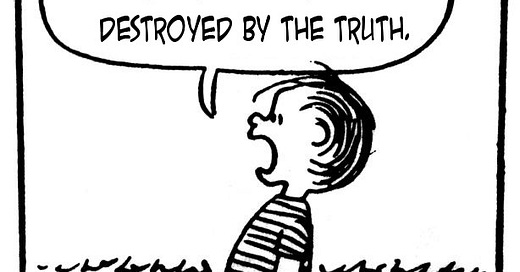




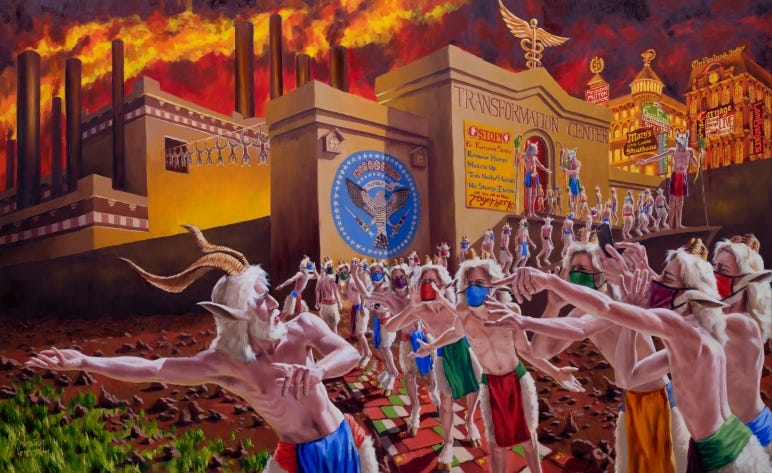
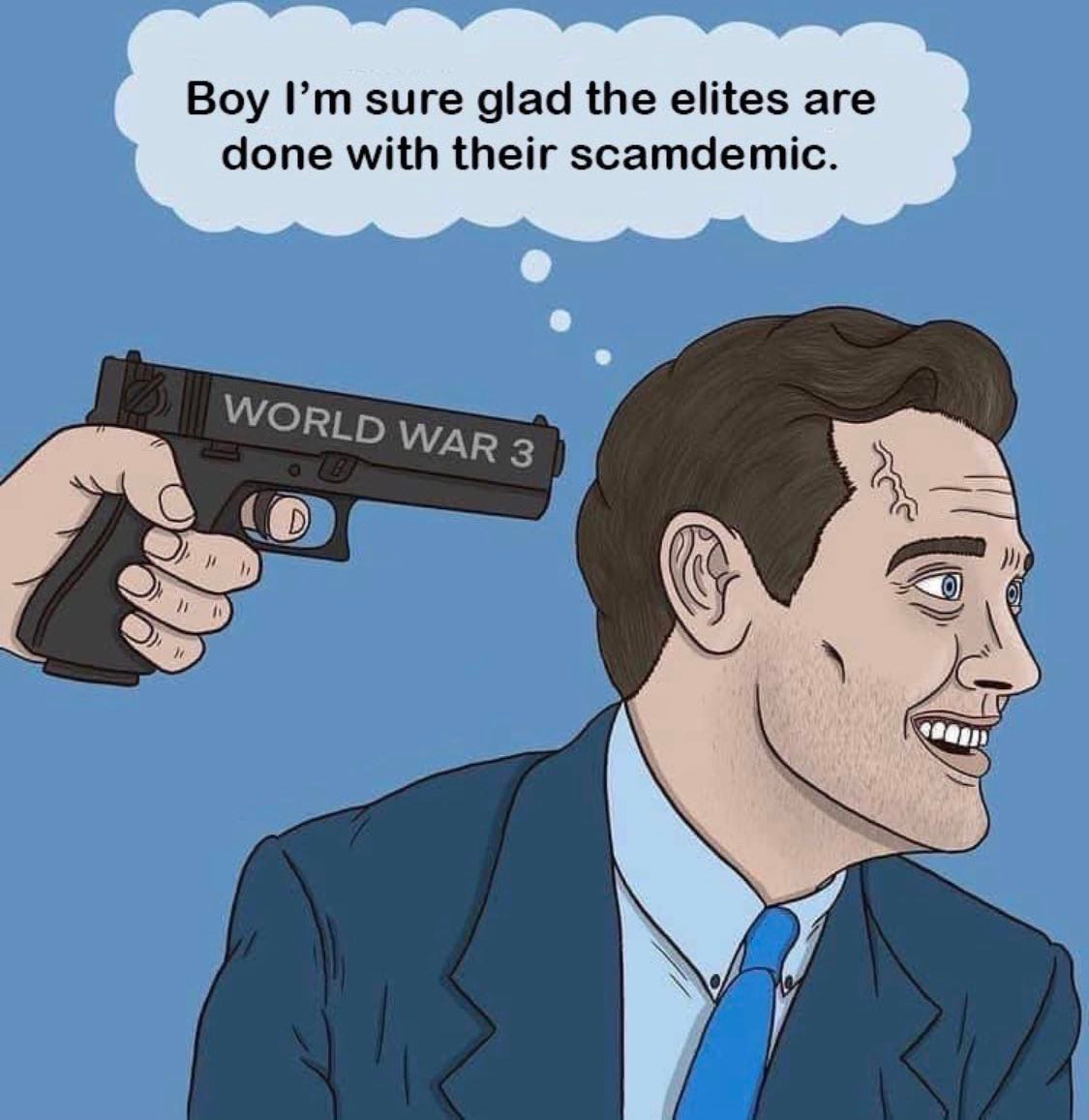
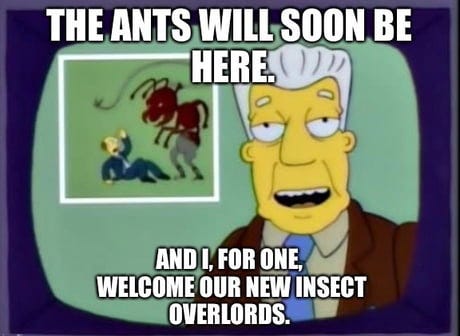
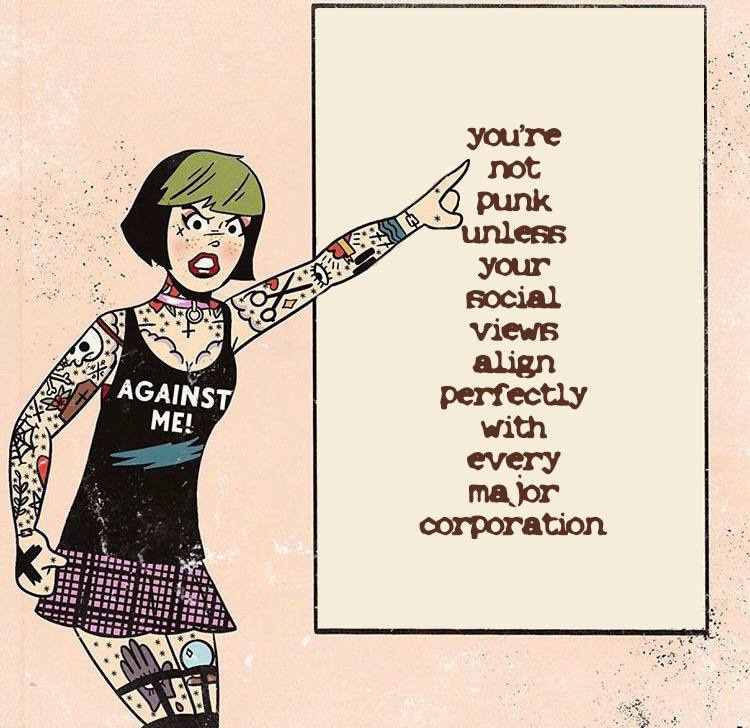
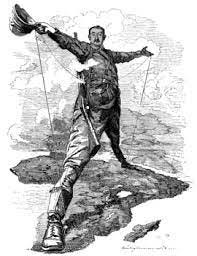

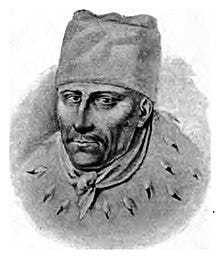
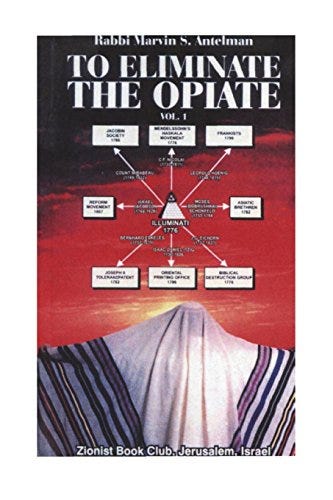
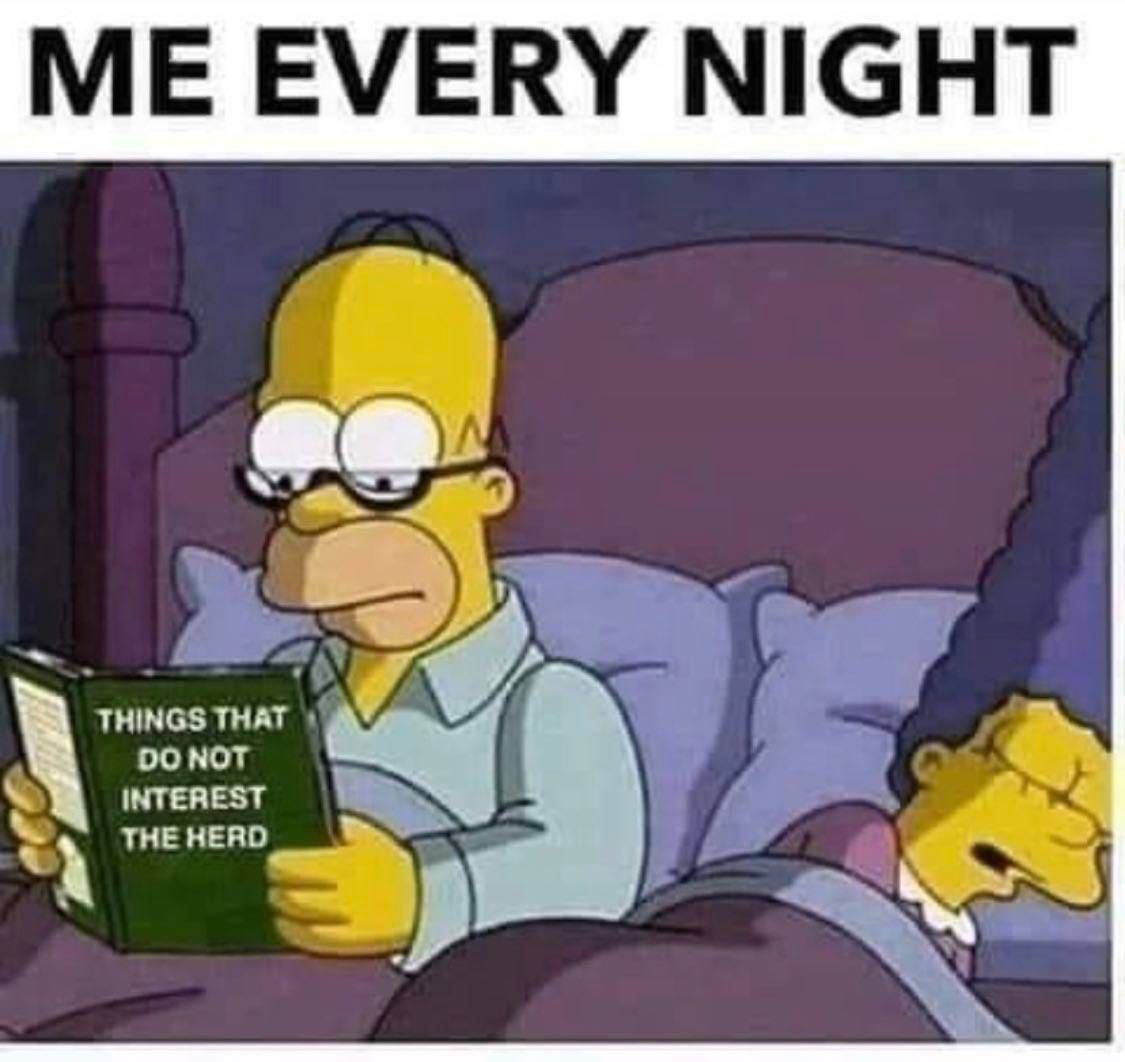
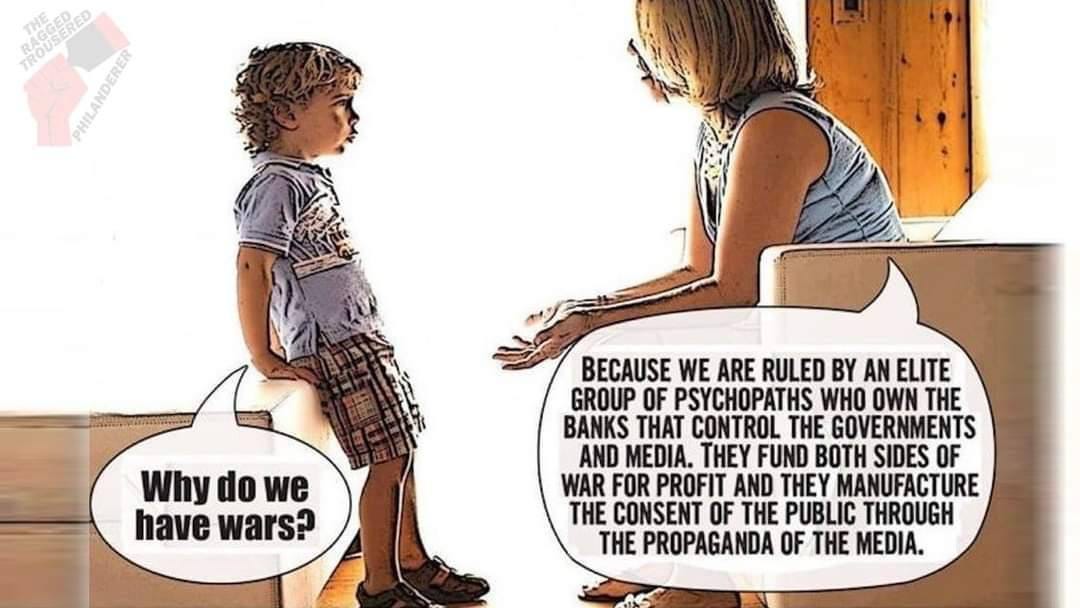


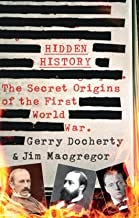
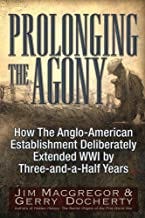

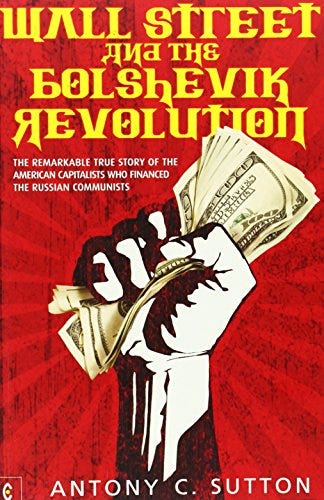


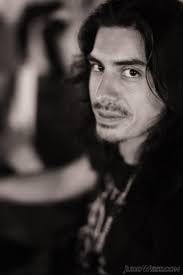

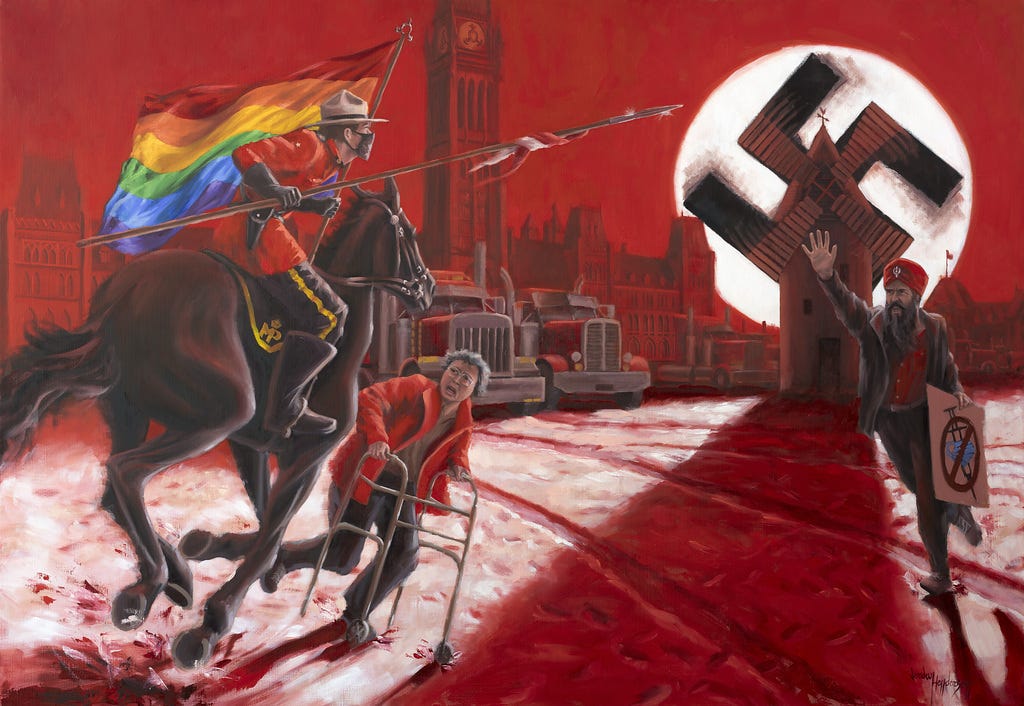
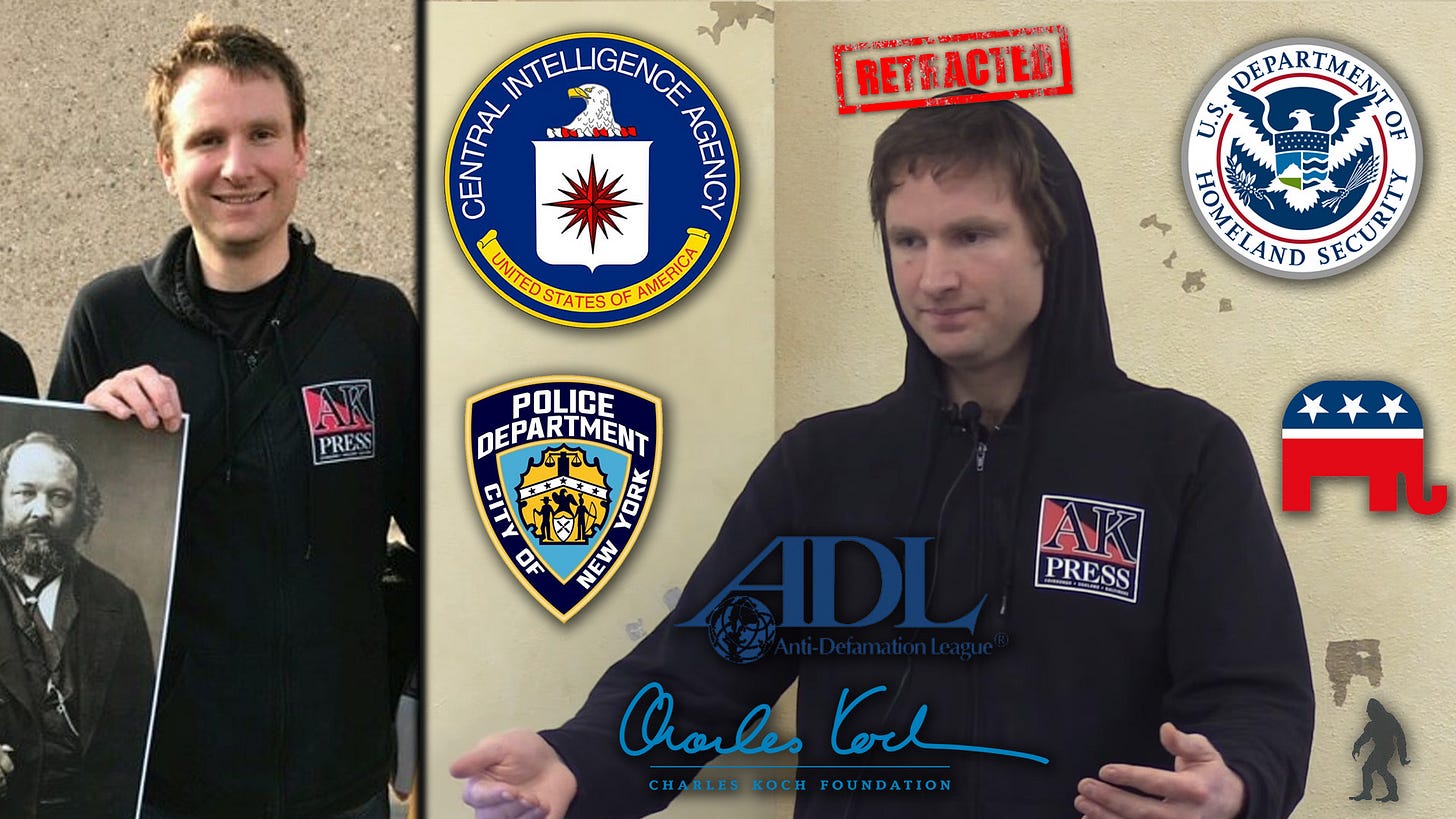

Thank you Crow!
I finally got the chance to read through this article.
I thought the interview was excellent and will rabbit hole the linked reference material soon as well.
I found the entire article be equally brave and tactful. Necessary qualities when discussing the taboo subject of critiquing those who are not to be critiqued. I connected with the trepidation of discussing or even researching this subject, for the same fears you illustrated in the article. I even hesitate now to type the word jew or jewish.. so that tells me this is a deep conditioning I am looking to de-colonize.
The programming is real, and in relation to the comments below, I think that post secondary education is the birth place for woke-ism. and a structure focused primarily on teaching one what to think as opposed to how to think. Educators and the educated would have consciously chosen, to gloss over, ignore and divert attention from these historically relevant facts - I'm guessing as a survival technique.
In this current covid era medical professionals were looking at the same grim career choice, recommend and even submit themselves to an unproven, unsafe and ineffective medical procedure in the interests of big pharma, or lose their jobs and position in their community.
Personally, I remember being physically attacked by a pro-authoritarian so called "anarchist comrade" for mentioning the uncomfortable truth that is avoided in most activist communities about real control at the top of the banking pyramid - which I suggested is masked by a corporate media, serving the same overlords that runs a propaganda campaign 24/7 disguised as our entertainment. I was labelled a Nazi, and this guy tried to fight me.
Cognitive dissonance is hard to live with for anyone who is trying to integrate spirituality with their activism. The whole self becomes divided into pieces, and the only antidote I can think of for this fracturing is shining a light on the truths , especially the ones that make us uncomfortable.
You, Corbett, Davis and of course Cudenec are helping to open up this conversation that surprisingly has been avoided by anarchist thinkers for way too long.
So thanks again for your bravery and I look forward to educating myself some more on a rabbit hole that I've avoided myself from digging for too long.
What an amazing richly documented preamble! The beginning of the interview was uncomfortable to read, not because its content was unacceptable or “problematic,” but because it revealed how strong the taboo against talking about Jewishness is, how it has been made unacceptable to discuss this topic, and how this taboo has been used for decades to prevent studying and understanding some of the most enduring seats of perennial oligarchic power.
I love the discussion on fascism and racism, going beyond the ubiquitous narrow equivalency between these two terms, and seeing fascism as an extreme extension of liberalism in need of authoritarianism to achieve the goals of the oligarchy.
Thank you for daring to broach this topic!